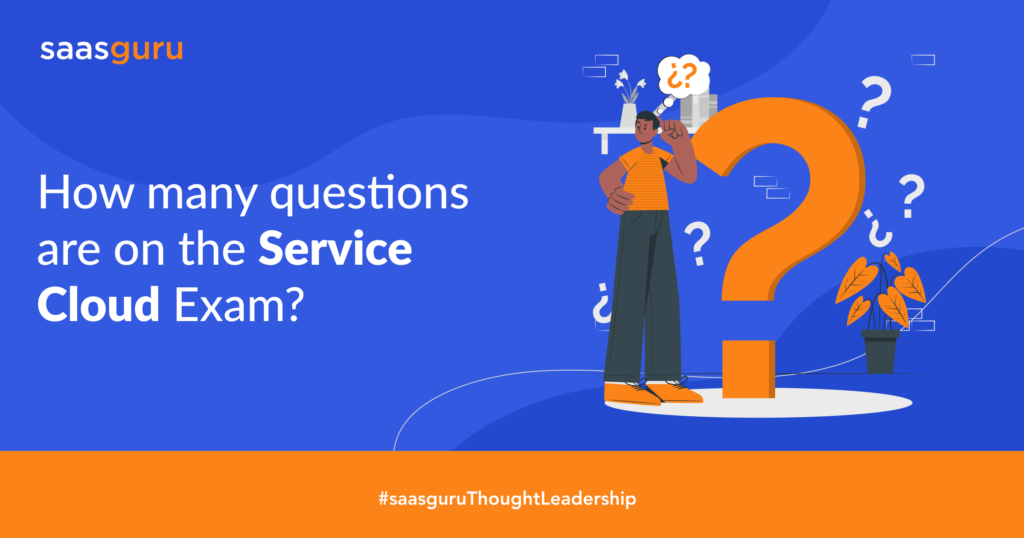Salesforce Certified Service Cloud Consultants can help customers achieve long-term success by designing and deploying Service Cloud solutions personalised to their needs, scalable and maintainable, and tailored to their demands.
Candidates who wish to attempt the Salesforce Certified Service Cloud Consultant exam must have experience deploying Salesforce Service Cloud solutions in a customer-facing role. Clearing the Salesforce Certified Administrator exam demonstrates the specified interest group’s familiarity with Salesforce application administration and configuration.
Who Is Eligible To Appear For The Service Cloud Exam?
Salesforce Certified Service Cloud Consultants design and provide Salesforce-based services to help customers meet their business goals. The consultant is experienced in creating Service Cloud solutions and can work with clients to implement them in their businesses. The consultant has knowledge in the contact center business and Salesforce application skills, including the ability to execute numerous apps in frequent customer scenarios.
Check the prerequisites and additional skills an ideal candidate should possess.
Service Cloud Exam Structure: How Many Questions Are There, And Its Weightage?
The Service Cloud Exam consists of 60 multiple-choice/multiple-select questions as well as up to 5 unscored questions. This exam has a 105-minute time limit, a registration price of USD 200, and a retake fee of USD 100.
The candidate can either take the exam online or on-site.
The following abilities and knowledge are assessed in the Salesforce Service Cloud Consultant exam. The following characteristics and functions should all be shown by a candidate with practical experience implementing Service Cloud solutions:
1. Industry Knowledge: 10%
- Explain the factors that influence key contact center metrics, KPIs, and business challenges.
- Explain the use cases and benefits for different interaction channels.
- Compare and contrast the different contact centers and their business drivers (help desk, product support, telesales, service, field service/depot repair, B2C, B2B, etc.).
- Identify the benefits of a knowledge base.
2. Implementation Strategies: 15%
- Given a scenario, determine how to facilitate a successful consulting engagement (plan, gather requirements, design, build, test, and document).
- Given a scenario, determine appropriate contact center licensing and deployment strategies.
3. Service Cloud Solution Design: 16%
- Given a scenario, analyze customer requirements to determine an appropriate solution design considering capabilities, limitations, and design trade-offs.
- Distinguish the key components that contribute to performance optimization within a design.
- Given a scenario, understand the use cases and benefits for implementing CTI, Communities, and Salesforce Field Service.
4. Knowledge Management: 9%
- Explain the knowledge article lifecycle, including creation, publishing, consumption, and feedback.
- Given business process requirements, determine the appropriate approach to manage Knowledge adoption and maintenance.
- Given requirements, choose how to configure data categories, article record types, articles, and publishing workflow.
- Understand the key factors to consider when implementing a Knowledge data migration strategy.
- Given a scenario, describe the considerations when migrating from Knowledge to Lightning Knowledge.
5. Interaction Channels: 10%
- Describe each interaction channel’s use cases and functionality (Experience Cloud Sites, mobile, phone, email, web, chat, and social media.)
- Given business process requirements, determine the appropriate approach to case submission.
- Explain the design considerations (user interface, user profiles, objects to expose, sharing model, reporting, etc.) and best practices when configuring an interaction channel solution (mobile, phone, email, web, chat, or social media).
6. Case Management: 15%
- Given requirements, design a case management solution from case creation to closure, including case assignment, case escalation, case resolution, and case disposition.
- Describe the relationships between cases and other areas such as assets, entitlements, work orders, Experience Cloud Sites, Chat, and Knowledge.
- Given a set of KPIs, determine the appropriate case management solution.
- Explain the capabilities, use cases, and how to configure the service entitlements and milestones in Salesforce.
- Explain the use cases, capabilities, and limitations of Service Cloud automation (Salesforce Flow, quick actions, macros, quick text).
- Identify use cases and capabilities of Social Customer Service.
7. Contact Center Analytics: 5%
- Given a set of desired metrics, determine the appropriate reporting solution, considering data sources, data volume, and various contact center technologies (ACD, IVR, PBX, etc.).
- Given a scenario, evaluate the considerations when designing reports and dashboards to serve different stakeholders (agents, supervisors, managers, executives).
8. Integration and Data Management: 5%
- Explain the use cases and considerations for standard Service Cloud Integrations.
- Explain the concerns for data migration and data quality.
9. Service Console: 15%
- Given a scenario, identify the appropriate Service Console features to meet the business need.
- Explain how different Service Console features work together to deliver business value.
- Given a set of business requirements, describe how a component should be implemented.
All Set For the Exam?
The majority of professionals who wish to become certified will need a variety of learning tools to succeed. The official Salesforce study guide is one of the resources available for this certification. After reading the official guide, it is recommended that you complete the Service Cloud Trailhead module to expand your training and knowledge.
The Service Cloud Study Guide and Service Cloud Practice Exams from saasguru can help you bridge that gap. With our assistance, test-takers can delve deeper into each subject area, increasing their confidence for the final exam. It is possible to monitor your learning development over time when used in conjunction with practice examinations.
The saasguru team is always delighted to address any questions concerning Salesforce certifications. Join our saasguru Slack Community.
Use Coupon Code BLOG20 to avail flat 20% discount on saasguru Programs.


